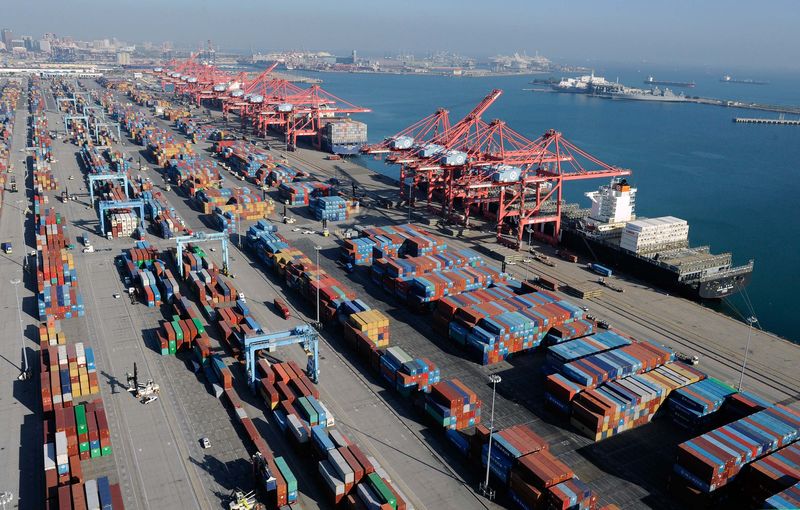By Steve Gorman
LOS ANGELES (Reuters) - Clogged ports along the U.S. West Coast were closed to cargo freighters for the third time in a week on Friday night, and shippers vowed to keep a partial shutdown in effect through Monday barring a settlement in labor talks with the dockworkers' union.
The latest halt in loading and unloading of container ships at the 29 ports came as contract talks between union negotiators and management's bargaining agent, the Pacific Maritime Association, appeared to reach a critical juncture.
The federal mediator who has sought for weeks to broker a deal called on Friday for a 48-hour news blackout after meeting with both parties together, and then separately, union and management representatives told Reuters.
The two sides said they would abide by the mediator's request. The development followed a bargaining session on Thursday, the parties' first face-to-face meeting in nearly a week, that failed to produce an accord.
The PMA has said the talks, which have dragged on for nine months, hit a new snag over a demand by the International Longshore and Warehouse Union for changes in the system of binding arbitration of contract disputes.
The 20,000 dockworkers represented by the union have been without a contract since July.
In the meantime, inbound cargo vessels continued to stack up at anchor, with 27 freighters left idle on Friday morning waiting for a berth outside the ports of Los Angeles and Long Beach, the nation's two busiest cargo hubs.
The numbers are likely to grow by the end of the weekend as additional vessels arrive from Asia with no place to park at the docks.
The West Coast ports were not left entirely dormant. The companies said work will continue in the dockyards, rail yards and terminal gates as they seek to clear some of the cargo containers already stacked up on the waterfronts.
EXPORT-IMPORT CRUNCH
The affected ports handle nearly half of all U.S. maritime trade and more than 70 percent of imports from Asia. Disruptions at those harbors have rippled through the U.S. commercial supply chain, slowing deliveries of a wide range of goods, from agricultural produce to housewares and apparel.
Farmers have been especially hard hit, with port disruptions posing a major barrier to perishable goods headed to overseas markets and export losses estimated to be running at hundreds of millions of dollars a day.
The shippers first suspended vessel operations at the ports for two days last weekend, and suspended operations again on Thursday, a union holiday. Port operations resumed in full for one eight-hour shift on Friday before the loading and unloading container ships was halted again.
Citing months of chronic congestion in freight traffic, the shipping companies said they were unwilling to pay union workers higher holiday and weekend wages while productivity declines and cargo backups reach the point of near gridlock.
The companies accuse the union of orchestrating work slowdowns since October to gain leverage in negotiations, while the union has faulted changes in shipping practices instituted by the carriers themselves for causing worsening backlogs.
Union officials also say the shippers are engaging in brinkmanship, using the partial shutdown to exaggerate the magnitude of the crisis as a pressure tactic.
The last time longshore contract talks led to a full shutdown of the West Coast ports was in 2002, when the companies imposed a lockout that was lifted 10 days later under a court order sought by President George W. Bush, invoking the 1947 Taft-Hartley Act.
The shipping industry has estimated the 2002 lockout caused $15.6 billion in economic losses. When it ended, some 200 freighters were waiting at anchor up and down the coast.

The retail and manufacturing industries have projected that a full, extended shutdown of the ports now could cost the U.S. economy some $2 billion a day.